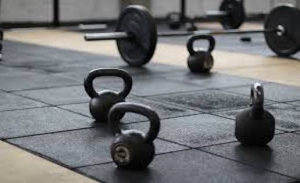
With medical advice constantly changing, it can be a real challenge to keep track of all the tests you should be getting. And you can’t always rely on your primary physician because they tend to only run rudimentary screenings like cholesterol and glucose.
If you want to optimize your health in the coming year and regain your vitality, you’ll need to move beyond the basics. To help men safeguard their health, we’ve gathered a list of ten cutting-edge health tests every man should consider getting in 2021.
1. DNA
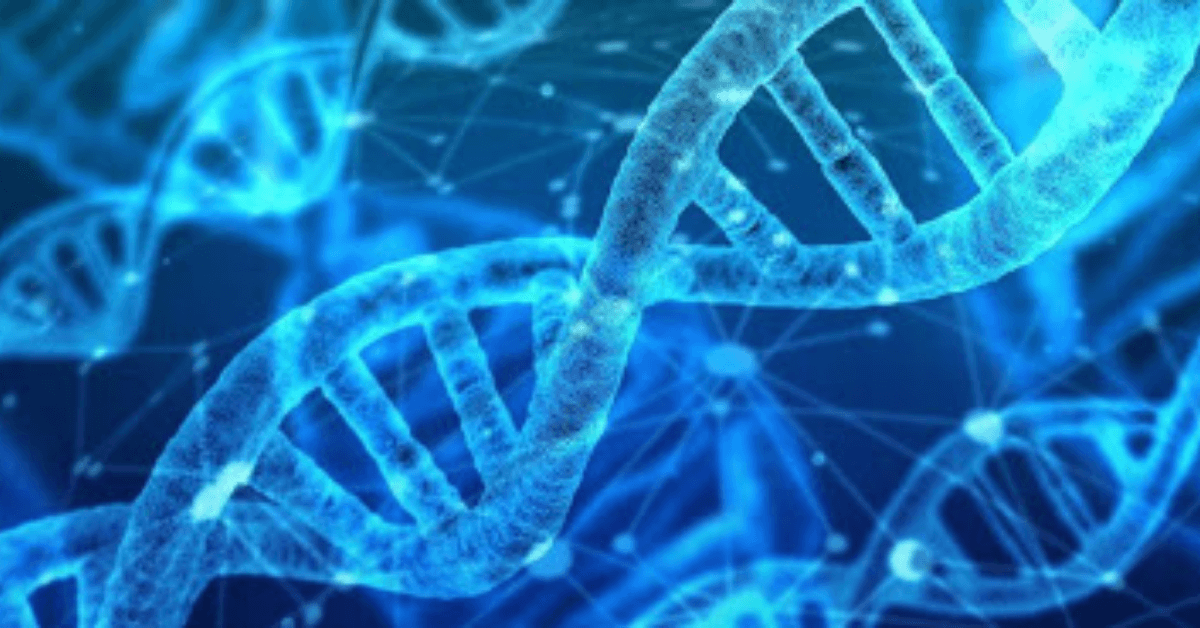
Health is no longer a one-size-fits-all field. In order to improve your health, your energy, and your longevity, you need to take an individualized, systems-based approach. That means taking a peak at your body’s own blueprint and the best way to do that is through DNA testing.
DNA testing is conducted via a mouth swab, hair sample, or blood test. According to the National Institutes of Health, genetic testing can be used to predict your risk of developing up to 2,000 hereditary diseases and conditions.[1] Such testing enables people to detect hereditary diseases well ahead of the curve, before symptoms have even begun to develop.
When most people think about their genes, they think about factors that are beyond their control, but that is simply not the case. According to the concept of epigenetics, lifestyle factors can dramatically alter how your genes are expressed. Think of it like this—if your genes are the notes of a song, your lifestyle factors are the musicians who emphasize certain notes over others. Just like the same song can sound different when another musician does a cover, the expression of your genes can be significantly altered depending on your diet, health habits, and activity level.
The key thing to remember is that no two people are identical and so no two health plans should be identical either. Only DNA testing will allow you to follow a comprehensive, data-driven health plan (including nutritional guidance) designed for your specific needs.
2. Epigenetic (Biologic) Age
They say age is just a number, and to some extent that is true. We’ve all heard stories of people in their 60’s and 70’s running marathons, swimming oceans, or hiking mountains. On the other hand, we’ve also heard of people who “prematurely aged” themselves because of bad habits like smoking, drinking, poor diet, poor sleep or a sedentary lifestyle. Clearly, when it comes to both types of people, the age on their driver’s license doesn’t tell the whole story.
What if you could take a test that told you where you stood age-wise in terms of your biology, not your chronology? Turns out, there is such a test.
Calculating someone’s biological age relies on that concept of epigenetics we just discussed. Your genes are turned on or off through the process of DNA methylation. Methylation simple means your DNA has been chemically modified—it doesn’t change your DNA sequence but it does alter how your genes are expressed. There are specific areas of your DNA sequence (or genome) that tend to show increased methylation with age and others that show decreased methylation. You can therefore detect someone’s biological (or epigenetic) age by testing the amount of methylation occurring at these thousands of sites across their genome. The result gives you a good idea of how old your body feels rather than how old it actually is.
Once you know your biological age, you will be better able to predict your susceptibility to certain diseases. In fact, a recent study found that, for some diseases, biological age is a better measure of a person’s health than chronological age.[2] Amongst a group of 70 year olds, the study found that those diagnosed with Alzheimer’s disease had a significantly lower biological age score. And another study conducted over the course of 20 years found that people with a higher biological age were more likely to die.[3]
3. Prostate-Specific Antigen (PSA)
In recent years, beloved morning news anchor Al Roker revealed that he had recently been diagnosed with an aggressive form of prostate cancer. Prostate cancer is the second most common type of cancer for men and although prostate exams can help catch the cancer early, an even better approach is a blood test for prostate-specific antigen (PSA).
PSA is a protein produced by the prostate gland. Elevated PSA levels in the blood serve as an early warning signal of prostate cancer. In fact, it was a PSA test that enabled doctors to catch Al Roker’s cancer early, before it had time to produce symptoms.[4] For this reason, in 2018 the U.S. Preventive Services Task Force recommended that all men over the age of 55 should discuss PSA testing with their doctor.[5]
4. Thyroid Hormones
Your thyroid is a small butterfly-shaped gland that does a lot of heavy lifting. Located near the bottom of your throat, the thyroid helps your body regulate many of its vital processes, including metabolism, heart rate, temperature and mood.
The thyroid accomplishes this job by producing two major hormones: triiodothyronine (T3) and thyroxine (T4). If your thyroid isn’t producing enough of these hormones, you have hypothyroidism. Symptoms of hypothyroidism include fatigue, weight gain, and depression. On the other hand, if your thyroid is producing too much of these hormones, you have hyperthyroidism. Symptoms of hyperthyroidism include tremors, poor sleep, weight loss, and anxiety.
Although thyroid disorders are common, they often go undiagnosed. According to the American Thyroid Association, an estimated 20 million Americans suffer from some form of thyroid disorder.[6] Unfortunately, 60% are unaware they have a thyroid issue, or have been incorrectly diagnosed with another health condition that mimics hypo- or hyperthyroidism.
Most conventional doctors screen for thyroid issues via a thyroid stimulating hormone (TSH) test. But a more accurate diagnosis is achieved when the test also measures Free T3 and Free T4. If you are suffering from symptoms of fatigue, unexplained weight gain/loss, and high anxiety or depression, it is time to get your thyroid hormones tested.
If a test does reveal you have a thyroid issue, treatment is fairly straightforward. Thyroid disorders are typically managed through a combination of medication, hormone replacement therapy and lifestyle changes, including the avoidance of caffeine, improved diet, and stress reduction.

5. Free Testosterone
Over the last three decades, low testosterone has become a global pandemic. Experts now estimate that 1 in 4 men over the age of 30 is low in this vital hormone.[7]
Although low testosterone is associated with low sex drive and erectile dysfunction, it also produces a number of other health issues, including weight gain (especially around the midsection), loss of muscle mass, loss of bone mass, hair loss, fatigue, irritability, and poor mental focus.
Testosterone is assessed via a blood test. Once secreted, testosterone travels in your blood in two forms. The first type either binds with albumin (a type of blood protein) or molecules known as sex hormone binding globulin (SHBG). The second type—called “free testosterone”—doesn’t bind to anything and remains bioavailable for your body’s use.
Uninformed doctors often make the mistake of measuring total testosterone, but it is pretty worthless. What you want is a measure of “free testosterone.” Free testosterone is the bioavailable form of testosterone, meaning this test lets you know how much testosterone is currently available in your bloodstream.
Conventional labs define the lower limit of “normal” testosterone to be anywhere from 250 to 350 ng/dL. But when it comes to testosterone, there is a VERY wide gap between normal and optimal levels. For this reason, many men who have testosterone levels that are low but still within the “normal” range would greatly benefit from testosterone treatment.
If you are diagnosed with low testosterone, there are a variety of treatment plans available. These include hormone replacement therapy, identifying underlying health issues that may be causing the low testosterone, and lifestyle changes. Before starting any testosterone treatment, read this article to identify important questions you should discuss with your doctor.

6. Vitamin D Level
Nearly every cell in your body uses vitamin D, making it a key factor in optimal health. Often called the “sunshine vitamin,” in truth it isn’t a vitamin at all. It’s actually a steroid hormone that either comes from your diet or is produced when your bare skin is exposed to ultraviolet B sunlight.
It is estimated that a whopping 42% of Americans have a vitamin D deficiency! And this rate is even higher among African Americans and Latinos, those over the age of 65, and those who suffer from chronic health conditions like obesity, celiac disease, and chronic kidney or liver disease.[8]
In men, low levels of vitamin D are associated with a whole host of health issues, including erectile dysfunction, an enlarged prostate, weight gain, heart disease, bone weakness, low energy, and mood swings.[#] The good news is that if a vitamin D deficiency is detected, it is easily treated with diet and/or supplements (with a safe upper limit of 4,000 IU of vitamin D daily).[9]
7. Folate (Vitamin B9)
Vitamin B9, also called folate or folic acid, is another vital nutrient. B9 helps with cell division and growth and is necessary for the methylation process described earlier. As a result, it is essential for detoxification, hormone balance, the function of nerve cells and male/female fertility.
Fatigue is the dominant symptom of too little B9. Pregnant women are highly susceptible to a B9 deficiency, but so too are people who suffer from digestive disorders like Celiac or Crohn’s disease, or those who have had gastrointestinal surgery.
Note that the terms “folate” and “folic acid” are often used interchangeably, but there are important differences. Folate is the natural, water-soluble version of B9, whereas folic acid is the manmade version.[11] Because the synthetic version is more shelf-stable, folic acid is often used in fortifying processed foods like cereals and breads. For most people, consuming folate and folic acid have the same effect. However, an estimated 15% of Caucasians and 25% of Latinos have a MTHFR gene mutation that prevents them from converting folic acid into usable folate.[12]
If a blood test reveals you are low in vitamin B9, there are two routes of treatment. First is diet—when you think of folate, think foliage. Folate-rich foods include dark leafy greens like spinach, collard greens, and bok choy. Organ meats, especially the liver, is another good food source.
The second option is a supplement, but because of the potential MTHFR gene mutation, it is best to use the most bioavailable form of folate, which is MTHF (or L-methylfolate). Your doctor will provide a recommended dose based on your tests results.
8. Advanced Lipid Panel
Chances are you’ve probably had your cholesterol checked by your primary physician at some point. If so, they likely ran a “standard lipid panel”—a fasting blood test that assesses your levels of HDL, LDL, total cholesterol, and triglycerides. However, more and more evidence now points to the importance of getting an “advanced lipid panel” to gain a deeper understanding of your cardiovascular risks.
Cholesterol refers to a yellow, waxy fat that travels through your bloodstream in tiny, protein-covered particles called lipoproteins. The high-density lipoproteins (HDL) are known as “good cholesterol” because they remove cholesterol from your arteries and dump it into your liver to be excreted. The low-density lipoproteins (LDL) are known as “bad cholesterol” because they deliver cholesterol to your arteries which can result in artery-clogging plaque. When too much plaque builds up in your arteries, you are at a greater risk for heart attacks and strokes.
An advanced lipid panel goes beyond the basics in two ways. First, it doesn’t just assess the amount of each cholesterol but also the lipid particle count and size. Think of lipoprotein particles as little taxis that shuttle fat through your arterial highway. A standard test would tell you how many fat passengers are in those taxis, but an advanced test also examines how many taxis there are and how big they are. This information is helpful because some people do not have a lot of overall LDL cholesterol, but they do have a lot of little lipid particles, with each particle carrying a small amount of cholesterol.[13] Consider this—you don’t need several big buses full of fat to cause a traffic jam, you can also get one with a bunch of half-filled taxis. Having a greater number of small lipid particles makes it easier for the cholesterol to attach to the arterial walls and form plaque, but a standard lipid panel would miss this red flag.
Second, an advanced lipid panel typically includes an assessment of your apolipoprotein B (ApoB). The ApoB test assesses the concentration of sticky lipoproteins in your blood. The greater lipoprotein concentration you have, the more “sticky” your cholesterol is prone to be, which increases the risk of plaque development. As you might already suspect, ApoB tends to mirror the lipid particle count test mentioned above, but many experts believe ApoB is a better predictor of cardiovascular risk that particle count/size. It is also the case that each test is a better predictor for certain types of people. For these reasons, it’s a good idea to have both your particle count/size and ApoB tested, especially if heart disease runs in your family.
9. Inflammation Markers
Over the past two decades, the health field has made substantial progress in the understanding of inflammation and its link to disease. Although short-term, acute inflammation that occurs because of an infection or injury is a good thing, chronic, low-grade inflammation underlies an exhaustive list of health threats, including hypertension, cardiovascular disease, dementia, arthritis, cancer and diabetes, just to name a few.[14]
Two critical blood tests are used to assess low-grade inflammation: hsCRP and homocysteine.
CRP stands for C-reactive protein. This protein, which is made by the liver, increases in the blood whenever there is bodily inflammation. Although you can test for CRP, a more powerful approach is to conduct a high-sensitivity CRP (hsCRP) test. The hsCRP test assesses inflammation specifically in the blood vessels and coronary arteries. This test is useful for identifying those prone to cardiovascular disease and also to help identify flare-ups in people with chronic inflammatory diseases like lupus or rheumatoid arthritis.
According to the American Heart Association, your risk of developing heart disease is related to your hsCRP as follows:
- Low risk: hsCRP lower than 1.0 mg/L
- Average risk: hsCRP between 1.0 mg/L and 3.0 mg/L
- High risk: hsCRP than 3.0 mg/L
Homocysteine is another useful marker for inflammation. Homocysteine is an amino acid, which means it is a chemical your body uses to make protein. In a healthy individual, vitamins B12, B6 and folate are used to break down homocysteine and transform it into more useful chemicals.
When this process works correctly, there should be little residual homocysteine left in your blood. But if a blood test reveals high levels of homocysteine remaining, it is an indication that something is wrong. It could just mean you have a deficiency in B12, B6 and/or folate. Or it might be a hint that you have that MTHFR gene mutation discussed earlier which is why you are low in folate. But it could also mean you are at a higher risk for developing cardiovascular disease, stroke, or Alzheimer’s disease. There are no clear symptoms associated with high homocysteine, which is why getting it tested is so crucial.
Although both hsCRP and homocysteine are inflammatory markers, they are not related. If your blood work suggests you are high in either of these, you should consult a cardiologist who may suggest more tests and possibly medication. You should also consider adopting lifestyle factors known to reduce inflammation. These include eating an anti-inflammatory diet (like Paleo), losing weight, increasing exercise, improving your sleep, and quitting smoking. For more tips on how to reduce inflammation and slow the aging process, check out this article.
The Bottom Line
The men’s health tests I’ve discussed here are critical health indicators, and yet most conventional doctors fail to routinely screen them. To get these tests, you will need to either actively request that your doctor run them or seek out a functional medicine doctor who is more knowledgeable about these indicators. We offer all these tests with our clients at the Gapin Institute and most within our G1 Performance Health program. The bright side is that all of these tests have fairly straightforward solutions. But in order to know what to do, you need to be armed with the right information.

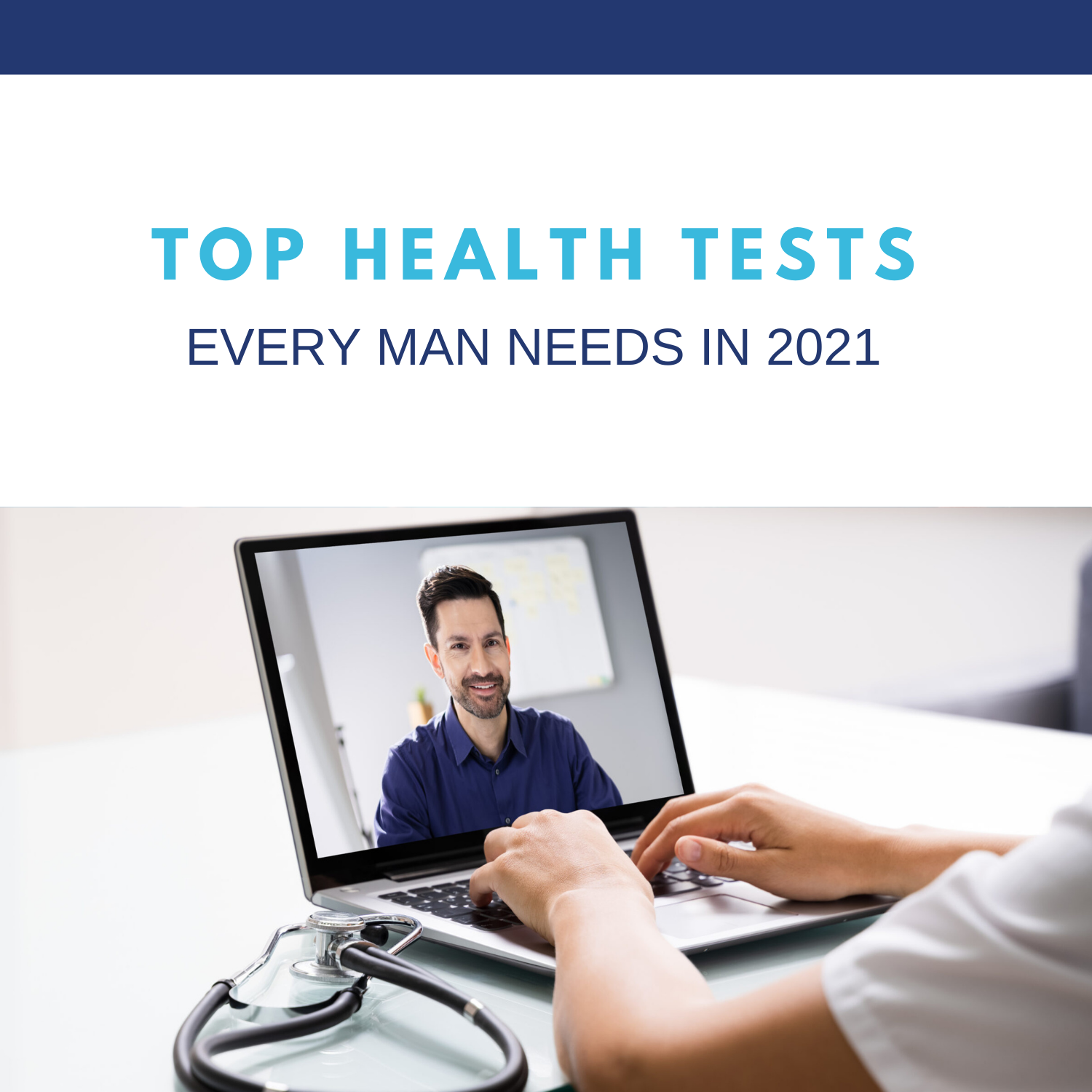

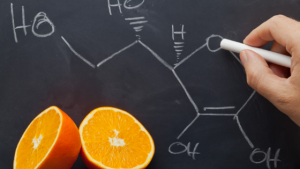

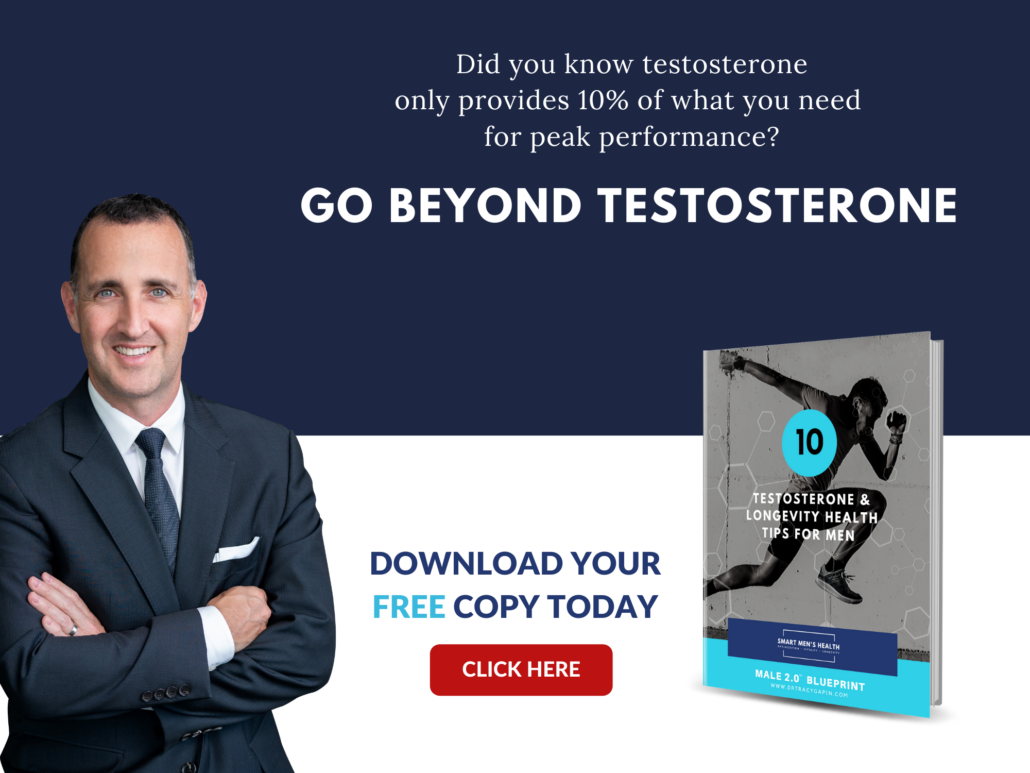





 In Male 2.0™, Dr. Tracy Gapin has turned everything we once thought we knew about men’s health and performance upside down. The old model of how to be “a man” is broken. A man who works himself to death. Unfortunately, a man who tries to NOT get sick but isn’t really healthy either. And a man who takes a pill for every ill but is never really cured. That was Male 1.0. Now, imagine being THE MAN ─ owning your performance in the bedroom, the weight room, and the boardroom. Living a fully optimized life. Becoming limitless. This is Male 2.0!
In Male 2.0™, Dr. Tracy Gapin has turned everything we once thought we knew about men’s health and performance upside down. The old model of how to be “a man” is broken. A man who works himself to death. Unfortunately, a man who tries to NOT get sick but isn’t really healthy either. And a man who takes a pill for every ill but is never really cured. That was Male 1.0. Now, imagine being THE MAN ─ owning your performance in the bedroom, the weight room, and the boardroom. Living a fully optimized life. Becoming limitless. This is Male 2.0!


















